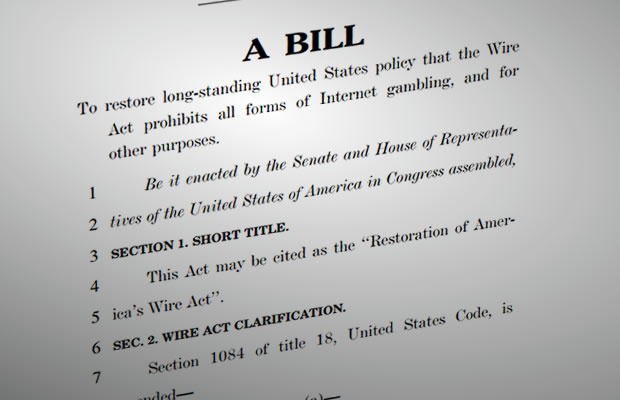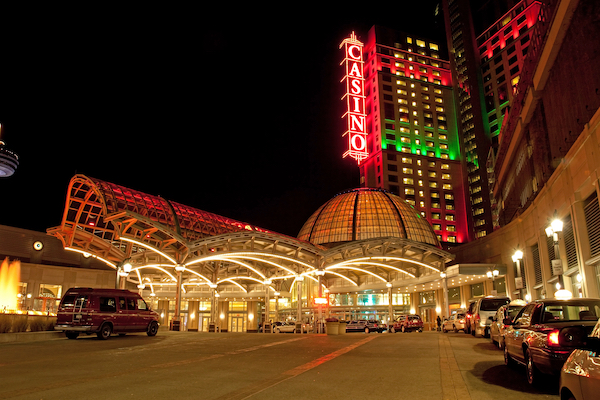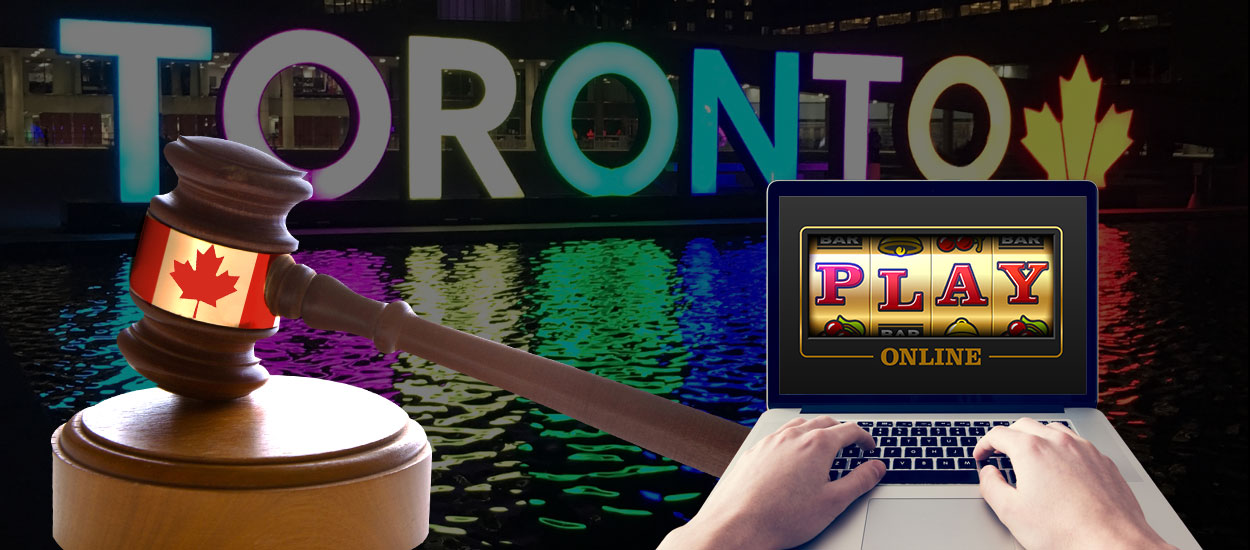Online gambling in Ontario should be based on the facts, not exaggerated claims
For anyone who followed the long journey in the United States to legalized online gambling they will recall the opposition of the late Las Vegas Sands (LVS) owner Sheldon Adelson. In September 2011, the Department of Justice was asked by the Illinois and New York governments if it was lawful to use the Internet and out-of-state transaction processors to sell lottery tickets to interstate adults or whether it violated the Wire Act. After careful consideration and discussions with legal counsel and affected parties, Attorney General Eric Holder released the following opinion by the Department of Justice:
Interstate transmissions of wire communications that do not relate to a "sporting event or contest" fall outside the reach of the Wire Act.
Because the proposed New York and Illinois lottery proposals do not involve wagering on sporting events or contests, the Wire Act does not prohibit them.
That opinion opened the door for states to offer online gambling for lotteries, casinos, and poker.
Almost immediately New Jersey and Delaware allowed its land-based facilities to run online casinos and Nevada casinos started offering remote gambling to patrons while in Nevada. Most casino operators in Nevada and other states, such as MGM and Caesars, began to investigate ways to make the new DOJ opinion work for them and so did Sheldon Adelson. After reflection and consultation with partners, Adelson decided that as a small fish in a large pond, LVS would not be overly profitable from an online presence. But, instead of simply opting out, Adelson decided that if he wasn’t going to get rich from online gambling, then neither would anyone else. He claimed that online gambling was going to cannibalize land-based casino revenues and then he hired on politicians (mostly Republicans) to take up his cause to reverse the DOJ opinion and mandate that all online gambling was illegal and contrary to the Wire Act. Instead of refuting the reasoning behind the 2011 DOJ Opinion or admitting that he didn’t want to threaten the cash cow he had by selling rooms from his expensive casino hotels, he instead resorted to old tactics seen under the likes of Bill Frist and John Kyl, who claimed that online gambling was too addictive, and that people would go bankrupt after problem gamblers or children gambled away the family paycheck and savings. While this was never proven to be true, it presented good fodder to the religious groups and “family values” groups who preached the dangers of gambling and were prepared to ignore the fact that LVS’ business was in land-based casinos. Adelson formed a group called the Coalition to Stop Internet Gambling, created a website called stopinternetgambling.com (which hasn't been updated since 2019), and had 'friends' on Capitol Hill introduce a bill for him called Restore America's Wire Act (RAWA). The goal of RAWA was to reverse the 2011 opinion and use Adelson’s opinion that the Wire Act applied to all forms of gambling on the Internet, even though a Federal court in 2003 ruled that the Wire Act only applied to sports betting and despite the clear wording of the 1961 law which says:
Adelson formed a group called the Coalition to Stop Internet Gambling, created a website called stopinternetgambling.com (which hasn't been updated since 2019), and had 'friends' on Capitol Hill introduce a bill for him called Restore America's Wire Act (RAWA). The goal of RAWA was to reverse the 2011 opinion and use Adelson’s opinion that the Wire Act applied to all forms of gambling on the Internet, even though a Federal court in 2003 ruled that the Wire Act only applied to sports betting and despite the clear wording of the 1961 law which says:
Whoever being engaged in the business of betting or wagering knowingly uses a wire communication facility for the transmission in interstate or foreign commerce of bets or wagers or information assisting in the placing of bets or wagers on any sporting event or contest
Adelson’s bill went nowhere until Donald Trump was elected as president in 2016. The DOJ reversed the 2011 decision in 2018 with a new opinion, but that new opinion was struck down by a federal court in New Hampshire and was eventually dismissed altogether after the Democrats won the election in 2020. By all accounts, all parties have relinquished any interest in pursuing it further, now that Sheldon Adelson has passed away, given that the Supreme Court repealed PASPA, and online sports betting is taking place in numerous states.
Online gambling in Ontario
It was thus somewhat shocking to see an Ontario casino recently release a report that claimed opening up online gambling was going to ruin the province, using many of the same arguments that Adelson had. As part of Ontario’s gambling revitalization plan, the province was prepared to offer an open bidding process, which would allow any company to get a license in exchange for a yearly licensing fee and a percentage of the profits going back to the province. Currently only the Ontario Lottery Corporation has legal online gambling in Ontario, but it was expected that companies like PokerStars, Caesars, SG Digital and various other companies would be entering the market soon.  So, on the heels of the announcement of who was to receive a license and what the tax rate would be, a report commissioned by Great Canadian Gaming (GCG), which has the exclusive rights to the three Greater Toronto casinos and most of the slot casinos at racetracks, was leaked to the government. This report indicated that the province could lose $2.8 billion over 5 years if the online gambling plan went ahead.
So, on the heels of the announcement of who was to receive a license and what the tax rate would be, a report commissioned by Great Canadian Gaming (GCG), which has the exclusive rights to the three Greater Toronto casinos and most of the slot casinos at racetracks, was leaked to the government. This report indicated that the province could lose $2.8 billion over 5 years if the online gambling plan went ahead.
The report by HLT Advisory Inc., dated January 11, 2022, is titled "Ontario Gaming Market Assessment", and is labelled "Private & Confidential". In the report HLT says that online gambling revenue will be popular, but it will be at the cost of land-based casinos and overall provincial revenue. And since online casinos will be taxed less than land-based casinos (expected to be 20%, compared to 55% for land-based casinos), the province will get hammered in overall revenue for government coffers. "If an open-license e-gaming model is implemented in Ontario, e-casino would capture a significant share of the total casino market," the HLT report says. The Canadian Broadcasting Corporation asked GCG for an interview, which they declined, but a GCG spokesman did issue the following statement to a CBC reporter:
The report includes critical learnings from other jurisdictions that introduced iGaming and cannibalized land-based operators in the process. While we support iGaming in principle, the Ontario government needs to take the time to get this right.
The exact details of the report aren’t available, but it would be interesting to see which jurisdictions they are referring to. Atlantic City has seen record revenues at land-based gambling facilities, thanks partly to online gambling and the same is true in Pennsylvania. More importantly, overall revenue increased as much as 60% in both states. So where are they getting the data from (since only New Jersey, Pennsylvania, Delaware, and Nevada have legal online casino gambling) and what timeframe are they looking at?
Numbers skewed by the pandemic
If HLT are using results from the last two years as a basis for their conclusions that presents a problem. Most casinos were shut down across the United States and Canada or had limited capacity from April 2020 to March 2021 when vaccines were widely available. So, naturally online revenue was going to greatly exceed land-based revenue during that period, and it would be an unreasonable measure for predicting revenue. Moreover, casinos in Ontario were closed from April 2020 to July 2021, reopened with half capacity between August 2021 and October 2021, went to full capacity for November and December and were shut down again at the beginning of this year after the government indicated the province was moving back to a modified stage 2 opening due to the concern about Omicron and its implications on hospitals. Without online gambling, the province would have received very little revenue from casino wagering during that time. But looking at wagering prior to the pandemic in all jurisdictions, it’s clear that one form of gambling had little or no effect on the other. People did not stop going to casinos because they could play games online, instead they complimented one with the other.
Some online operators said that there are a lot of hypotheticals built into the report, most of which they believe aren’t accurate. Jeffrey Haas, the Senior Vice President of DraftKings said that expansion of online gambling won't cannibalize land-based gambling, but instead will convince players wagering offshore to bet with legal Ontario sanctioned sites instead.  Also notable is that online gambling has enticed many young people to start going to land-based casinos because they got introduced to it playing online.
Also notable is that online gambling has enticed many young people to start going to land-based casinos because they got introduced to it playing online.
"I never even considered going to a casino," 32 year old Jack from Toronto told me, "But after OLG went live with casino games I set up an account and decided to play. I realized the fun and relaxation from the slot games so one day my girlfriend and I decided to go to Casino Rama and we had a blast. Nowadays, I play for a half hour or so online most nights and every 2 months or so we will make the drive to Casino Rama or Fallsview. But visits to casinos and playing online are completely different. Because of the time it takes to drive to the casino as well as the effort it takes to get ready, we consider a real casino visit to be an excursion and more like going to the movie theater, hockey game or a concert. We also decided to stay over at the hotel a couple of times and make a vacation out of it. And in Niagara Falls, there are lots of things to do besides the casino. One thing I can definitely tell you though is that online gambling actually increased my interest in physical casinos. It wasn’t the other way around."
Legal wrangling
One concern that has been expressed by Ontario's Auditor General Bonnie Lysyk last month is that the government’s plan to simply open everything up with no real regulations may be illegal under Canadian law. According to Lysyk, the Canadian criminal code requires that the Provincial government must have significant oversight and management of any gaming operation to be legal under federal law.
"Consideration for whether a province has illegally delegated the 'conduct and manage' function in a gaming scheme to a private entity has been the subject of past legal challenges in Canada. We conclude that iGaming Ontario’s business model could be subject to legal challenges," Lysyk stated in her report.
Lysyk added: "Under Ontario’s new model for internet gaming, key responsibilities to maintain integrity and fairness have been entrusted to the private sector such as direct testing of internet gaming systems, game design, gaming systems, determination of payouts, and odds-setting."
Lysyk, therefore suggested that the Alcohol and Gaming Commission of Ontario and its subsidiary, iGaming Ontario, make sure that they are directly involved in the oversight of any gambling to avoid any legal challenges in the future.
One thing that everyone seems to agree on, however, is that the motives of the report are suspicious because it was commissioned by GCG who has a virtual monopoly of land-based gambling in Ontario, but may have little, to no presence online. Even if they do get an online license, the company will almost certainly be overshadowed by larger companies like SG Digital, Caesars or BetMGM who have the infrastructure already in place to launch a popular and successful iGaming package, as well as the marketing and promotional budgets to get a much larger share of the iGaming market than GCG. Consequently, most analysts I spoke to believe that GCG is simply emulating LVS and Sheldon Adelson and are trying to persuade the government to forego or delay their plans to offer open online gambling since they won’t benefit as much as others and want to hold onto their virtual monopoly as long as possible. To their credit, neither GCG nor HLT hypocritically stated that blocking online gambling is necessary to protect the children and the family paycheck, like Adelson did.
It is imperative, therefore, that the Ontario government and municipalities look very closely at the source of the study and the exact logistics and timeframe of the study before accepting the conclusions as fact. If anything, other jurisdictions have seen a huge increase in revenues by offering both online gambling and land-based gambling and the difference in tax rates won’t affect that. New Jersey just reported $4.74 billion in total gambling revenue for 2021, an increase of 64.4% over 2020 figures and a 5% increase over 2019, pre-pandemic, when casinos and racetracks were open all year. And in 2011, before the DOJ opinion was released, revenue was only $3.4 billion.
So, when all is said and done, online gambling plus land-based gambling will increase Ontario revenues, not diminish them. Ontario may want to reconsider tax rates and possibly increase the proposed tax for online gambling and/or reduce the tax on land-based gambling, but the difference in tax rates is not going to change the truth that offering both verticals will increase revenue to the province, not decrease it. Ontario plans to make a decision in February. Let’s hope the decision is based on facts and not hyperbole.
Read insights from Hartley Henderson every week here at OSGA and check out Hartley's RUMOR MILL!







































